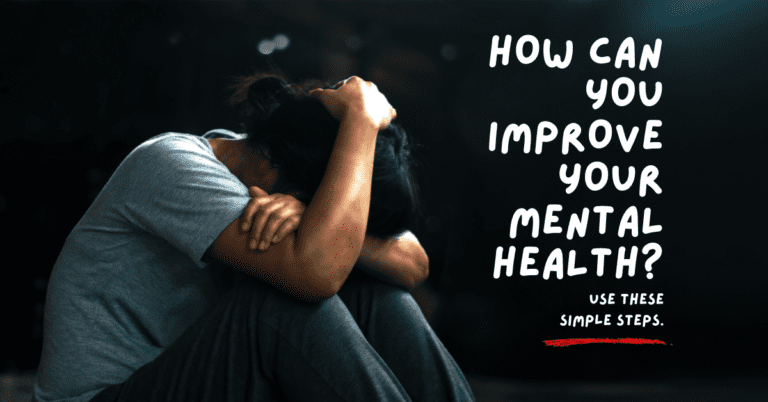8 Tips for Helping Teens at Risk for Suicide
*Photo by Samantha Sophia on Unsplash
While mental health issues have gained an increased amount of attention in the United States, the nation’s general mental well-being has still been steadily on the decline.
According to the Journal of Abnormal Psychology, the recent spike in suicide rates has had a profound impact on American teens. The study discovered that teens between 14 and 17 are 60 percent more likely to commit suicide than they were just one decade ago.
Combatting suicide has proven to be much more difficult than combating other common causes of death. For example, while heart disease and cancer—two of the leading causes of death in the United States—have been combatted through the development of better medicines, suicide rates are affected by many factors that are simply intangible. Though the advancement of mental health centers has made these rates lower than they might be otherwise, it remains clear that combatting this modern epidemic is a duty of society.
There are many reasons why a given teenager may be more likely to die by suicide than their peers. Persistent mental health issues (especially depression), exposure to trauma or violence, and ongoing substance abuse disorders are just a few of the risk factors that have been accepted by the psych community.
If you are the parent of a teenager—whether they are uniquely at risk or not—you have every reason to be concerned about the recent rise in teen suicide rates. While there are no easy answers in the long fight against this national epidemic, there are still a few things you can do that can do to make a difference. Such as seeking specialized, adolescent treatment at a teen treatment center. Below, we will discuss some of the most accessible ways parents can help their teens.
1. Back to the Basics
While the causes of suicide are complex and difficult to quantify, there are a few things we still can know to be certain. Having adequate amounts of sleep, healthy diets, and plenty of fresh water is a formula that has been working for human beings (and our ancestors) for millions of years. Many of today’s teenagers are getting less sleep and drinking less water than those of generations past. Ignoring life’s necessities may contribute to the risk of suicide. Assuring your teen to maintain a healthy lifestyle can make a tremendous difference.
2. Avoid Dismissive Statements
Some parents who were raised to be “tough” or stoic tend to easily dismiss their teen’s comments about their personal feelings. If your teen tells you that they are sad or that their life doesn’t have any meaning, the worst thing you can do is immediately tell them they’re being “overly dramatic.” Dismissive statements such as these may cause your teen to take matters into their own hands and attempt to combat any relevant mental health issues on their own. Instead, it is much healthier to listen to what they have to say and offer yourself as a source of love and support.
3. Discourage Isolation, Encourage Social Interactions
Though having some alone time is a healthy component of any lifestyle, extreme isolation is a factor that is commonly associated with suicide. Without being too forceful, you should make an active effort to encourage your teen to spend time with their friends and family. While you may be told that your family outing to the zoo is “lame”, these sorts of positive interactions have been proven to help teens suffering from depression.
4. Remove Firearms, Drugs, and Alcohol
According to the most recently gathered figures, firearms account for a slight majority (51 percent) of all suicides that occur in the United States. If you believe that your teen is at risk of suicide at all, then it will be crucial for these firearms to be safely stored. Drugs (including prescription drugs) and alcohol are also common contributors to suicide. Making sure that your teen does not have easy access to these substances will be very important. If your teen does a prescription medication, they are taking every day, keep a close eye out for potential signs of abuse.
5. Don’t Assume Antidepressants Are a “Cure All”
Upon receiving a diagnosis of depression or other mental health conditions, many teens will be given a small prescription to help them better live their lives. However, while these prescriptions may be all that is necessary for some people, they may be ineffective—or even worse, have a negative effect—on others.
Once your teen has been issued a prescription, you should be paying more attention to the warning signs of suicide, not less. The odds of getting a prescription “perfectly” right on the first try are somewhat low; most prescriptions and mental health treatment options will need to be carefully adjusted over time.
6. Connect Your Teen with An Outside Resource
Suicide is a major issue that many parents are ill-equipped to handle on their own. Just as you wouldn’t assume being a parent automatically qualifies you to treat heart disease (unless you are a cardiologist), you also shouldn’t assume the fight against suicide will “come naturally.” The sometimes combative dynamic between teens and parents can also make it more difficult to have an open dialogue. Connecting your teens with an outside resource—a school counselor, a religious official, a therapist, etc.—can help create and provide them with an additional source of help they may desperately need.
7. Pay Close Attention to Warning Signs of Suicide
Suicide rarely happens “out of the blue”, even if the event itself comes as a total surprise. Instead, there are usually multiple warning signs leading up to the tragic event. Substance abuse disorders, spontaneously giving away possessions, consistently talking about death, and patterns of self-harm (such as cutting) are all commonly correlated with suicide. As a parent, you are in a prime position to identify these warning signs and potentially prevent a tragedy.
8. Be Supportive
This one may sound obvious, but it still needs to be said.
There are many things in your teenager’s life that you may not know about and are well beyond your ability to control. But, as a parent, what you can control is the interactions you have with your teen regularly. With each interaction, you will have the option to be either loving or not loving, supportive or not supportive. Though you may find yourself frustrated with an ongoing situation, offering unconditional love and support is surely something you will never regret.
Last Thoughts
The recent rise in teen suicide rates is not something our society should accept as “inevitable”, or “natural.” The death of their teen is something that no parent on Earth should ever be forced to endure. While the tips provided in this article offer just a few small steps in the long trek toward preventing teen suicide, they are steps worth taking.







